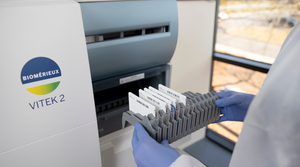How Medical Device Batteries Fail
September 30, 2013
Batteries play an essential role in hundreds of medical devices. For example, medical devices that use batteries include ventilators, physiologic monitors, infusion pumps and automatic external defibrillators. Since the batteries in these devices are essential for proper use, failures can potentially lead to injury or death.
A variety of different battery types of used in medical devices. These include custom-made batteries, rechargeable batteries and alkaline batteries.
For diagnostic devices, batteries are often used in thermometers, pulse oximeters, electrocardiograms, telemetry packs and boxes, non-invasive blood pressure machines and physiological monitors. Infusion pump devices also feature batteries. This includes patient-controlled anesthesia devices, syringe pumps and large-volume pumps.
A variety of life support devices also make use of batteries. This includes ventilators, defibrillators, temporary external pacemakers, heart/lung machines, anesthesia machines, intra-aortic balloon pumps, aspirators, isolettes/warmers, feeding pumps, suction pumps and biphasic positive airway pressure machines. In addition, other devices like sequence compression systems, patient lifts, electric beds, portable computer stations, portable x-rays and portable lights also make use of battery technologies.
Failure to plug-in device when not in use |
|---|
Overcharging |
Undercharging |
Inaccessible plugs/outlets |
Leakage |
Swelling |
Confusion with on/off button on pump |
Loose connection between electrical cord and device |
Incorrect replacement battery by staff |
Out of these devices, diagnostic devices are the most like to experience failure. For the most part, life-support devices don't suffer from battery issues due to redundant designs and rigorous maintenance schedules.
One of the most common battery failures is user-caused. In many cases, patients fail to plug-in a device when not in use, leading to a premature charge depletion. This can often be caused by limited access to plugs or outlets. Other issues include battery swelling, leakage, overcharging and undercharging.
Below is a list of battery-related problems reported by respondents in a MedSun survey of U.S. hospitals.
For more on batteries, see the following MPMN articles:
About the Author(s)
You May Also Like

